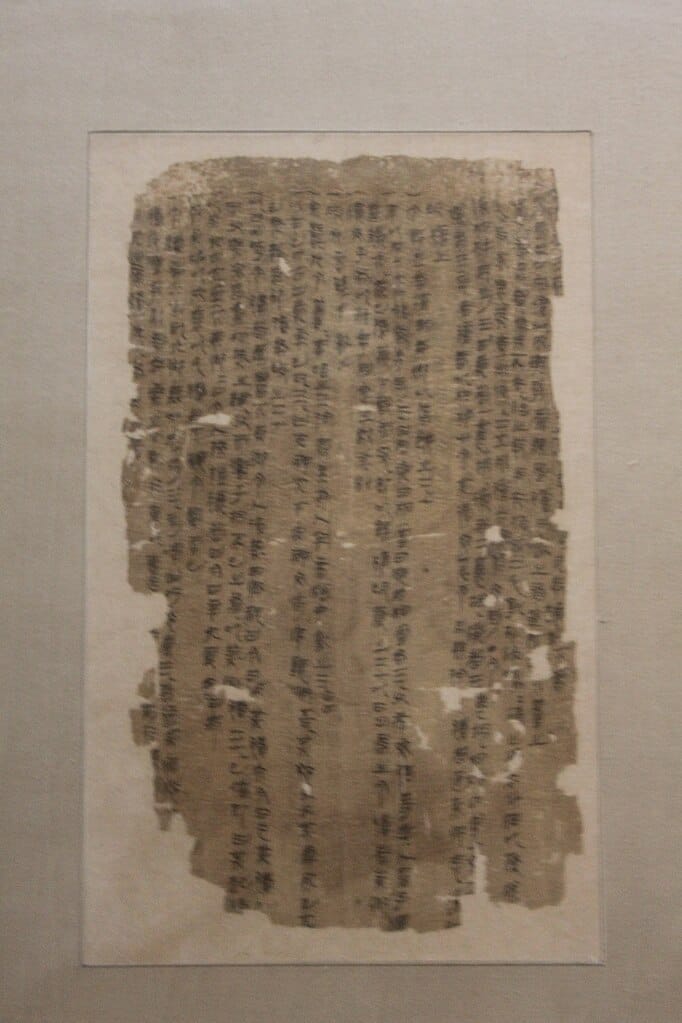Is the Tao Te Ching Still Relevant Today, and Why Would You Care to Read it?

It is over 2,500 years old and consists of 81 short verses from 4 to 30 lines.
Given the incredible changes in the world since the Industrial Revolution to present-day challenges with artificial intelligence, one might think this tiny book you can read in 30 minutes would offer little value to humanity.
Yet, the passage of over 2,500 years cannot discredit or discount the timeless wisdom and insights of the Tao Te Ching.
The Tao Te Ching is implicitly a queer text, one that has been an ethics of the marginalized and the oppressed. Through simple metaphors and observations of nature, the Tao Te Ching offers a powerful virtue ethics philosophy for our common humanity, one that challenges the status quo.
“Throughout Chinese history, Taoism has always been the philosophy of the minority and the suppressed, and that secret societies, in their revolt against oppressive rulers, have often raised the banner of Taoism.” (1)
The Tao requires you to think for yourself, to be open to seeing the patterns of the natural world, and to act within those patterns without rigid adherence.
In Nature, There Is No Orthodoxy or Ideology
These are constructs of the human mind that have led to the development of society, religion, laws, capitalism, and other forms of organization.
”A tree that is unbending is easily broken.” (2)
In nature, nothing remains fixed and unchanging — an observation we often fail to heed. When you visit a different geographical region, you will notice a change in the climate and ecology. As the season changes, animals migrate and the natural world either hibernates or blooms.
“The hard and strong will fall.
The soft and weak will overcome.” (2)
With the rise of populism, polarization, and prejudice, we are witnessing the cycle of the strong (power-hungry) and hard of mind.
While I don’t believe this rise to the extreme right will last, it will most likely be painful and violent for some time.
Many of us are working to expose and oppose these inhumane ideologies, inviting others to join us, or at least to change their minds. However, I believe we need to create and lead from a new philosophy — an ethics of connection and commonness, a way of human-heartedness that respects human dignity for all and endeavours to be flexible.
“Therefore the stiff and unbending is the disciple of death.
The gentle and yielding is the disciple of life.” (2)
We Need What the Tao Teaches – Now More than Ever
The timeless wisdom of the Tao is possibly more relevant today than the better-known Stoicism (as popularized by Ryan Holiday) and Buddhism (which has its roots in Taoism).
What has made Stoic texts easy to read and understand has much to do with the influence of the Roman Empire on the development of Europe, the so-called “Western mindset,” and that the Stoic texts were written in prose. Most Stoic texts are attributed to an identifiable author, and we have accurate historical records and manuscripts.
The Tao, on the other hand, cannot be attributed to one person, let alone a single original text.
What are referred to as the Mawangdui and the Guodian versions of the Tao Te Ching are considered consistent with older received texts — except for differences in chapter sequence and Sinograms (Chinese characters). The fact that we continue to discover via archeology bits and pieces of what is attributed to the Tao Te Ching creates considerable difficulty for the translator.
Studying the Tao Te Ching became a personal project almost five years ago, inspired by the question, "Is there such a thing as Queer Leadership?"
Seeking answers, I took to reading, contemplating, making notes, and writing ideas inspired by what I had read.
Thus far, I have read about 20 translations (dog-eared, notes pencilled in the margins, and constantly referenced). I have sought translations based on different criteria and sourced out-of-print translations that other commentators have mutually recommended.
Translations are interpretations — even more so with a text like the Tao Te Ching.
To understand the potential meanings of a text that is as variable as the Tao Te Ching from one translation to the next requires a critical and linguistic analysis approach to reading to find common or similar messages across translations.
For me, I am faced with the limitation of not being able to read the Tao Te Ching in its original language.
While Ryan Holliday has become the go-to person when you think of Stoicism, there isn't someone who has popularized and made accessible the organic virtue philosophy of the Tao Te Ching.
I’m putting my name on record:
I am doing the work to create a virtue philosophy of human-heartedness and ethical leadership rooted in the Tao.
References
- (1) Chan, Wing-Tsit, trans. “The Way of Lao Tzu (Tao-te Ching).” New Jersey: Prentice-Hall, 1963
- (2) Gia-fu Feng and Jane English translation of the Tao Te Ching, verse 76. https://www.wussu.com/laotzu/laotzu76.html





Member discussion